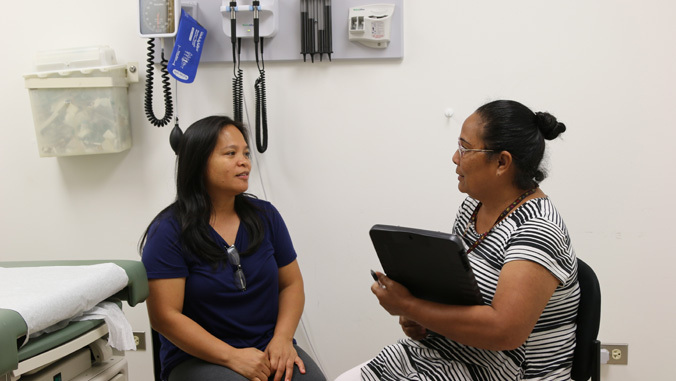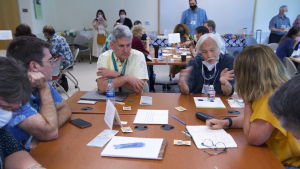
The University of Hawaiʻi is receiving $11.3 million in funding from the U.S. Department of Health and Human Services to support programs and research that aim to reduce racial and ethnic disparities and boost Hawaiʻi’s health care workforce. It’s part of a total of $27 million in funding announced in an October 18 news release by Hawaiʻi U.S. Sen. Brian Schatz, who helped secure the funding as a member of the U.S. Senate Appropriations Committee.

“Local agencies and organizations do important work providing community and behavioral health services, addressing health disparities, and conducting innovative research into cancer and other serious diseases,” said Schatz in the release. “By supporting these programs, we’re helping to keep more people across Hawaiʻi healthy and safe.”
The UH funding includes:
$9 million to reduce racial and ethnic health disparities
- $4,552,815 to support Ola HAWAIʻI, a specialized research center focused on addressing health disparities led by the John A. Burns School of Medicine (JABSOM).
Related UH News story: Array of health threats to Native Hawaiians focus of $22.5M grant, September 21, 2022 - $2,467,767 for the UH Cancer Center to advance research on ethnic differences in cancer.
- $1,521,750 for the Hawaiʻi Clinical Research Network at JABSOM to promote diverse racial and ethnic representation in clinical research trials.
- $700,437 for the UH Cancer Center to study health disparities in liver disease, which disproportionately affects Native Hawaiians and Pacific Islanders.
$2.3 million to strengthen Hawaiʻi’s health care workforce
- $1,279,949 for Kapiʻolani Community College to expand the Community Health Worker and Health Support Worker Training Program.
- $999,966 for the new UH Rural Health Research and Policy Center to advance research related to rural health, the rural health workforce and health equity.
—Based on a U.S. Senate press release

